We’ve all heard the myth that a glass of wine or a cocktail before bed can help you sleep better. While alcohol may make you feel drowsy at first, it actually interferes with your sleep cycle, often leading to fragmented and poor-quality rest. In this blog, we’ll explore how alcohol affects your sleep and why cutting it out of your nightly routine may be the key to getting a better night’s rest.
The Initial Sedative Effect: Why Alcohol Makes You Feel Sleepy
It’s true that alcohol can make you feel drowsy and relaxed, especially after a long day. Alcohol acts as a central nervous system depressant, slowing down brain activity and making you feel calmer, which may seem like the perfect recipe for falling asleep. This is why many people turn to a nightcap to help them drift off.
But this initial sedative effect is short-lived. While alcohol might help you fall asleep faster, it sets the stage for a disrupted night ahead.
Alcohol and the Sleep Cycle: What Really Happens
Your body goes through several sleep stages throughout the night, including light sleep, deep sleep, and REM (rapid eye movement) sleep, which is the stage where you dream. Each stage is crucial for different aspects of physical and mental restoration. Alcohol, however, throws this delicate cycle off balance.
1. Disrupted REM Sleep
REM sleep is essential for cognitive functions such as memory, learning, and emotional regulation. Alcohol reduces the amount of time you spend in REM sleep, which can leave you feeling mentally sluggish the next day. Skipping or shortening REM sleep can also affect your mood, leading to irritability or emotional instability.
2. Fragmented Sleep
Alcohol tends to wear off after a few hours, causing a rebound effect. As your body metabolizes alcohol, it becomes more alert, leading to frequent awakenings throughout the night. This fragmented sleep means you’re less likely to experience the full restorative benefits of uninterrupted deep sleep.
3. Worsened Sleep Apnea and Snoring
For people with sleep apnea or even mild snoring, alcohol can make things worse. Alcohol relaxes the muscles in the throat, which increases the likelihood of airway obstruction. This can lead to louder snoring or more severe sleep apnea episodes, further disrupting your sleep and possibly affecting your partner’s rest, too.
The Role of Alcohol in Dehydration and Restlessness
Alcohol is a diuretic, which means it increases the amount of urine your body produces. This can lead to dehydration, and as a result, you might wake up in the middle of the night feeling thirsty or needing to go to the bathroom. Dehydration can also cause restlessness, making it harder to stay in deep sleep stages.
The Next-Day Effects: Grogginess and Fatigue
Even if alcohol helps you fall asleep quickly, the lack of quality sleep usually shows up the next morning. Many people who drink before bed wake up feeling groggy, tired, and mentally foggy, even after what seemed like a full night of sleep. This is largely due to the disruption of REM sleep and the fragmented sleep cycle caused by alcohol.
Long-Term Effects on Mental Health
Consistent alcohol consumption can lead to more severe mental health issues over time. Regular drinking can cause chemical changes in the brain that exacerbate mental health conditions such as:
-
Depression: Alcohol is a depressant, and long-term use can increase the risk of depression. It disrupts the balance of chemicals in the brain that regulate mood and emotion.
-
Anxiety Disorders: The more you drink, the more dependent you may become on alcohol to cope with anxiety, leading to a vicious cycle. Over time, alcohol can increase anxiety levels, even when you're not drinking.
-
Sleep Disorders: Poor sleep is closely linked to mental health problems, and alcohol disrupts sleep cycles, leading to chronic fatigue, irritability, and a weakened ability to manage stress.
Alcohol’s Impact on Social and Emotional Well-Being
Beyond the physiological effects, alcohol can also take a toll on your social life and relationships. Impaired judgment and mood swings often lead to conflicts with loved ones, social isolation, and a loss of emotional balance. Over time, this can worsen feelings of loneliness and emotional instability, feeding into mental health challenges.
How Cut Above Can Help You Regain Mental Balance
The good news is that there are healthier alternatives that can help you maintain your mental well-being without giving up the enjoyment of a good drink. Cut Above offers alcohol-free spirits that allow you to unwind, relax, and socialize without the negative mental health effects associated with alcohol.
Benefits of Choosing Cut Above Zero-Proof Spirits:
-
Calming, Without the Consequences: With Cut Above spirits, you can enjoy the calming ritual of a cocktail without the emotional and psychological rollercoaster that alcohol brings.
-
Support for Mental Clarity: Our alcohol-free spirits help you maintain mental clarity and focus, avoiding the brain fog, anxiety, and mood swings that often follow alcohol consumption.
-
Mindful Socializing: By choosing Cut Above, you can still enjoy social events and gatherings without worrying about the impact on your mental health. Our zero-proof spirits allow you to engage fully in the moment, fostering meaningful connections and emotional balance.
-
Breaking the Anxiety Cycle: For those who drink to manage stress or anxiety, switching to alcohol-free alternatives can help break the cycle. Cut Above provides the comfort of a familiar drink without the anxiety rebound that alcohol causes.
A New Approach to Self-Care
Self-care is more than just relaxation—it’s about making choices that nourish your mind, body, and spirit. Swapping traditional alcohol for Cut Above’s zero-proof spirits is an easy yet impactful way to care for your mental health.
-
Better Sleep: Sleep plays a crucial role in mental health. As alcohol disrupts sleep cycles, opting for Cut Above means better rest and better mental clarity.
-
Emotional Stability: With alcohol out of the equation, you’ll experience fewer mood swings, irritability, and anxiety, allowing you to feel more emotionally grounded.
-
Enhanced Productivity: Clearer thinking and more energy lead to higher productivity and better mental health. You won’t have to worry about sluggish mornings or foggy afternoons after a night of drinking.
Sleep Better, Feel Better: Rest Easy with Cut Above
Alcohol may seem like a shortcut to relaxation, but it often leaves your sleep disrupted and restless. Poor sleep can snowball into grogginess, irritability, and long-term health problems. The good news is, Cut Above is here to help you break that cycle.
Our alcohol-free spirits allow you to unwind and enjoy a nightcap without compromising your sleep quality. With Cut Above, you can indulge in the pleasure of your favorite drink while protecting your natural sleep rhythm. No more tossing and turning or waking up feeling drained—just peaceful, uninterrupted rest that leaves you feeling refreshed and recharged.
By choosing Cut Above, you’re prioritizing your health, sleep, and well-being. Sip smarter, sleep better, and wake up ready to take on the day. Discover the secret to better sleep with Cut Above—because great nights lead to better days.

Shop our full lineup of zero proof alcohol free Spirits.
Try our Sample Size Variety Pack to discover which one is your favorite. (The variety pack includes all 4 Cut Above Spirits with 3 alcohol free cocktails in each of the 4 trial size bottles!)



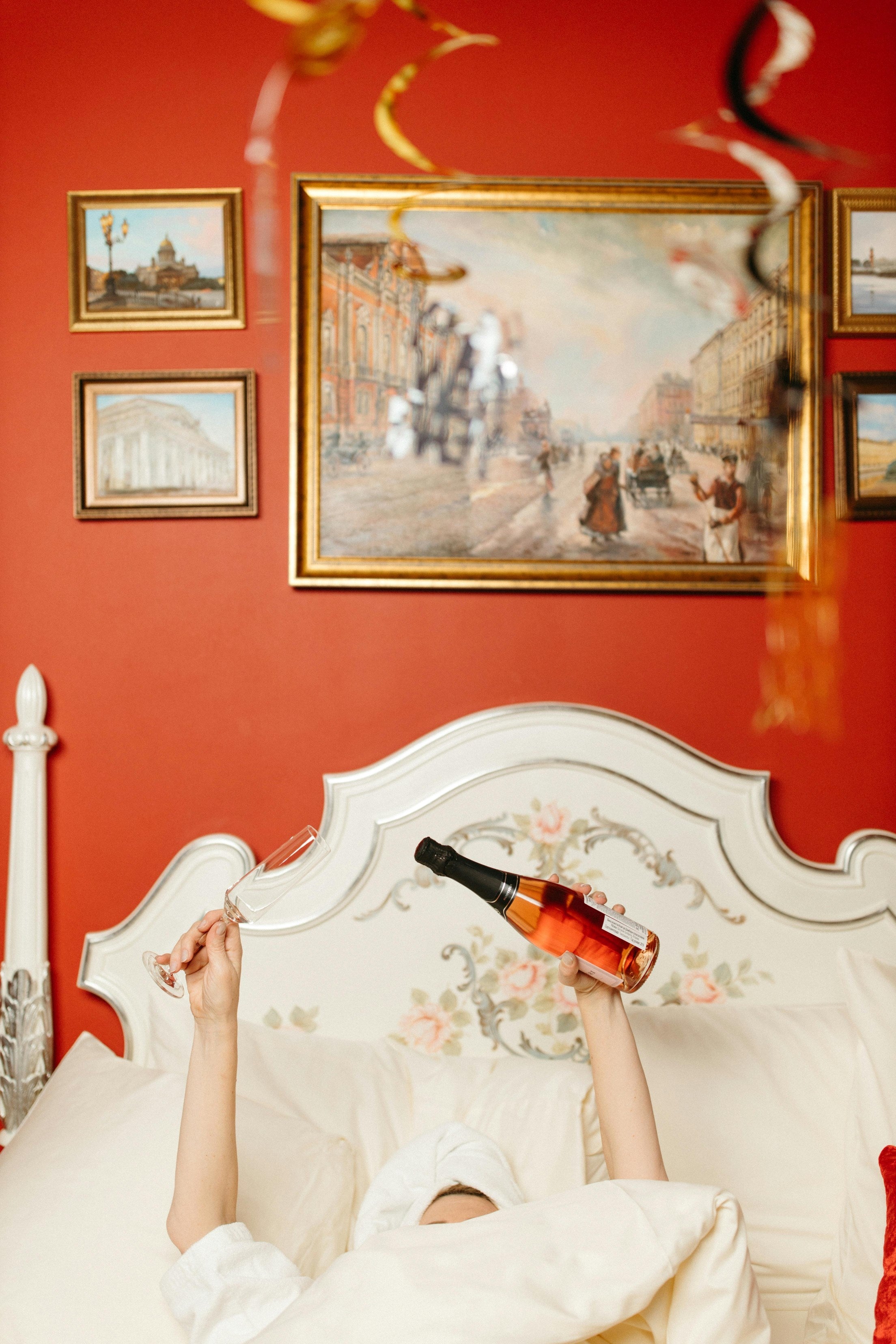

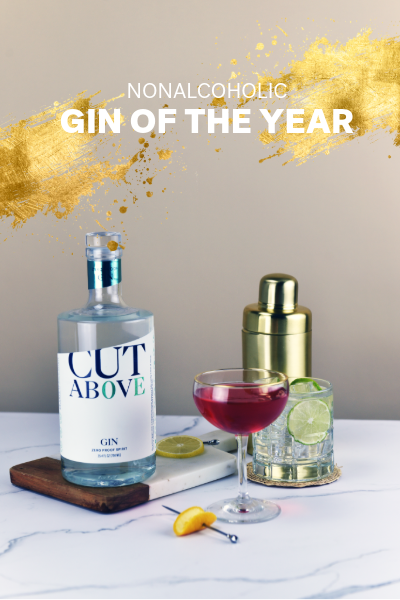
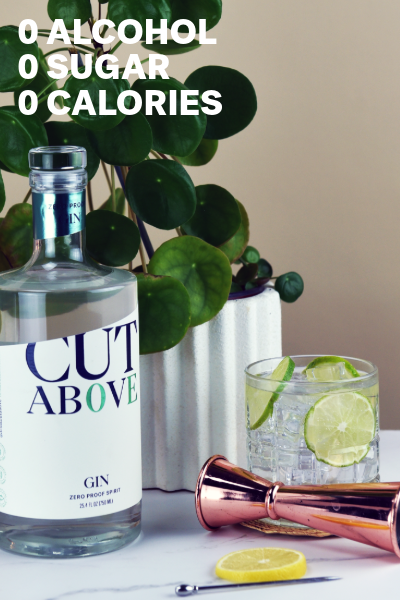
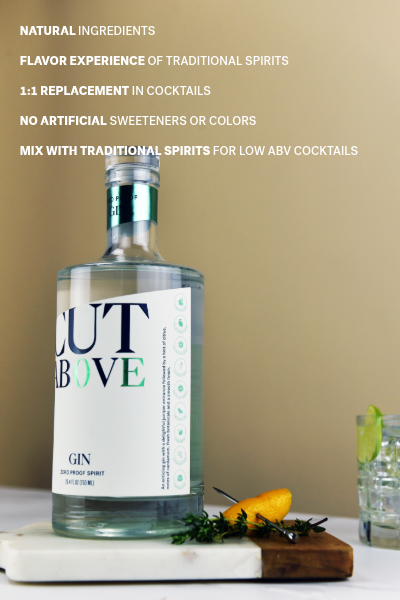


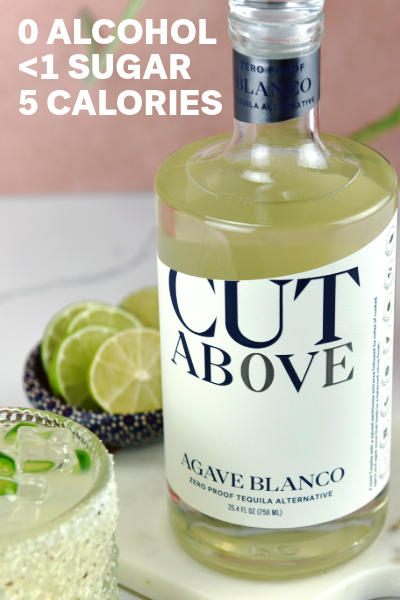
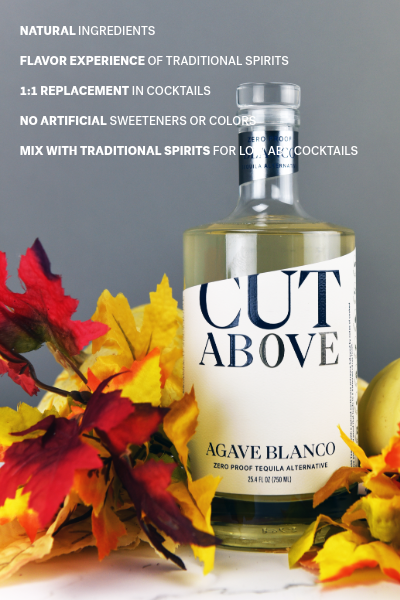
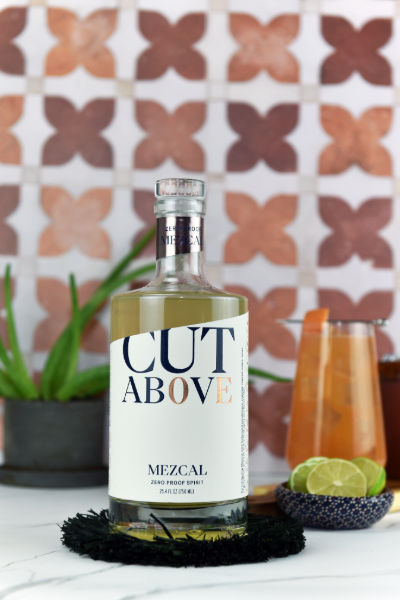

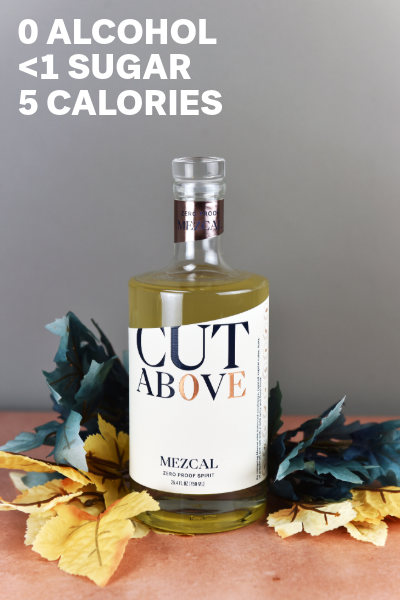

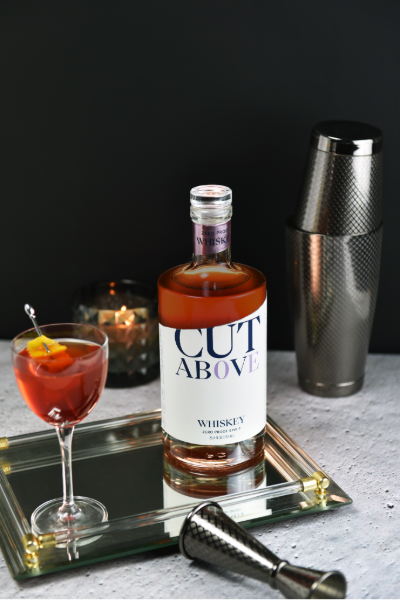

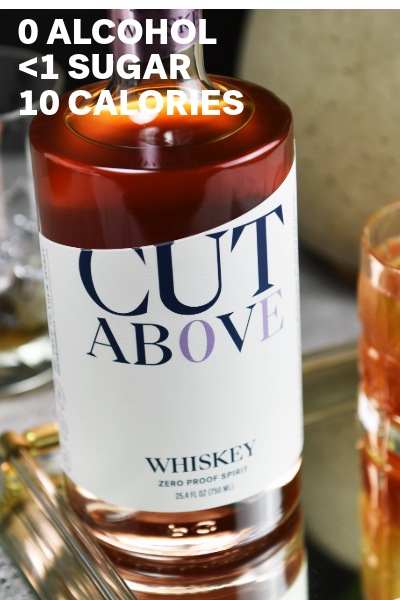

Share:
Easy No And Low Cocktail Recipes For Everyone
5 Tips for Crushing Sober October with Cut Above